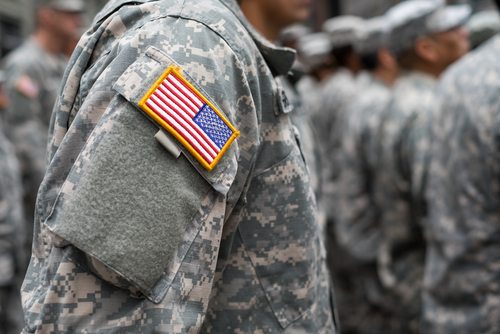In comparison with regular people who have no history of military service, a veteran is at higher risk of experiencing problems with alcohol. A 2015 study published in the Journal of Studies on Alcohol and Drugs found that personalized interventions for veterans suffering from alcohol abuse can considerably increase the likelihood of them being successful in avoiding alcohol.
The Relationship of Veterans with Alcohol
Men and women enrolled in the military consume more alcohol than civilians. They also have a higher rate of binge drinking. The factors that lead up to that include a traditional association between military life and drinking. Alcohol is easier to access than other harmful substances, and often individuals in the military turn to alcohol to cope with the stress inducing circumstances they place.
Even upon leaving the military veterans frequently continue their heavy drinking. While there are a number of reasons that may influence a veteran’s drinking behavior, post traumatic stress disorder (PTSD) plays a vital role. Exposure to combat is one of the most likely sources of PTSD, which in turn makes an individual much more susceptible to developing serious alcohol problems. `
Personalizing Alcohol Interventions
An intervention can be described as a relatively short procedure which is intended to assist doctors and other trained practitioners to identify indicators of alcohol problems, discuss the hazards of drinking and make treatment referrals. An intervention can last for a few minutes or could last for several sessions.
A personalized alcohol intervention can be described as one that is geared to each individual rather than being generic. In the course of a personalized intervention, the participant receives specific information to help with their drinking pattern.
How do Personalized Interventions Help Veterans?
A study conducted by researchers from the University of Missouri and Harry S. Truman Memorial Veterans’ Hospital looked at data from 325 veterans who had recently performed military service to measure the effectiveness of personalized interventions. Half the participants received personalized interventions, and the other half received more general information. The participants were also in follow up sessions which examined their drinking behavior one month and six months after the initial interventions.
The conclusion reached was that among those veterans who were still drinking, members from both interventions had similar blood alcohol levels. However, among those veterans who stopped drinking, the ones in the personalized intervention group had a higher chance of remaining alcohol free.
Recovery is hard work but you don’t have to do it alone. Call The Villa to find out how we can support your goals for sober living.

